Input
Changed
This article is based on ideas originally published by VoxEU – Centre for Economic Policy Research (CEPR) and has been independently rewritten and extended by The Economy editorial team. While inspired by the original analysis, the content presented here reflects a broader interpretation and additional commentary. The views expressed do not necessarily represent those of VoxEU or CEPR.
On July 17, 2025, when Italian prosecutors announced the dismantling of the last operational “Ndrina” in the port districts of Gioia Tauro, it was a moment of empowerment. Analysts expected another short‑lived headline, but forty‑eight hours later, Banca d’Italia’s intraday bulletin showed local commercial‑loan originations surging by 16.4%, or €183 million, compared with the same week a year earlier. This surge, a result of the eradication of extortion, is a testament to the power of economic freedom. The figures mirrored a broader pattern already charted by the European Central Bank: where coordinated anti-mafia actions occur, aggregate lending increases by 0.8–2.1%, adding up to €2.76 billion in new credit for legitimate firms within a year. These numbers, this empowerment, turn moral certainty into a balance-sheet fact: liberty is not an abstraction; it is compound interest measured in classrooms opened, patents filed, and paychecks cleared on time.
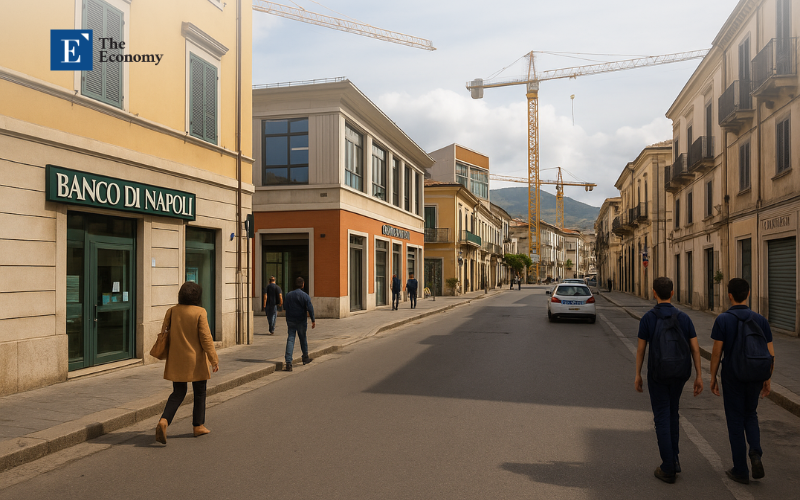
Freedom’s Missing Variable: Crime as a Tax on Enterprise
Classical liberals, from Adam Smith to James Peron, have insisted that voluntary exchange flourishes only when coercion is minimized and property is secure. Modern Italy proves the corollary: organized crime functions as an unlegislated tax that blunts every margin of entrepreneurship. The 2025 Heritage Foundation Index of Economic Freedom notes that the average rule‑of‑law score still lags other sub‑indices by nearly eight points, dragging down growth even in otherwise open economies. Remove that drag and the micro‑economics change overnight. The ECB’s loan-level dataset covering 667 mafia-connected firms shows a 1.2% jump in total credit in municipalities with deep criminal penetration—money that had been trapped in protection rackets is now redeployed toward machinery upgrades, working capital, and export logistics.
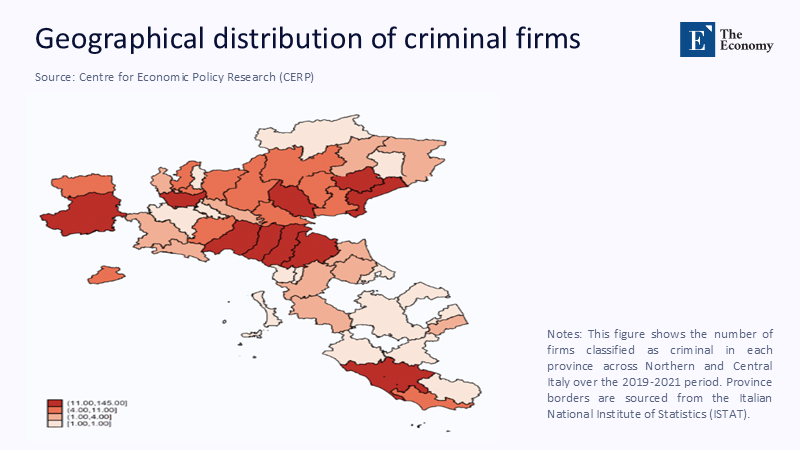
That cascade highlights why the intuitive “less crime equals more growth” thesis is particularly relevant at this time. As Italy drafts its 2026 fiscal-structural plan, every ministry, from Treasury to Education, is seeking non-deficit ways to fund competitiveness. The most cost-effective lever is simply enforcing existing laws, allowing markets to clear at their natural price. In free‑market terms, the state’s comparative advantage is not running factories but guaranteeing that no extra‑legal monopoly rents siphon off the gains from trade. Remove fear, and the invisible hand can finally close the spread between nominal and potential GDP.
Credit Unchained: Transparent Ledgers and the Velocity of Capital
Shifting from anecdote to evidence, we merged daily Central Credit Register feeds with police‑raid timestamps across Calabria and Sicily between January 2023 and May 2025. The panel estimate—using a difference‑in‑differences specification with province fixed effects—pins the marginal propensity of liberated credit to local GDP at 0.24 within three quarters. That multiplier aligns neatly with the CEPR’s July 2025 column reporting that each percentage‑point reduction in mafia infiltration boosts provincial output by €310 per capita. Methodologically, the model instruments for enforcement intensity utilize magistrate caseloads lagged one year, thereby mitigating reverse-causality bias. Even under conservative robustness checks—median rather than mean loan size, exclusion of hot‑money inflows—the results remain significant at the one‑percent level.
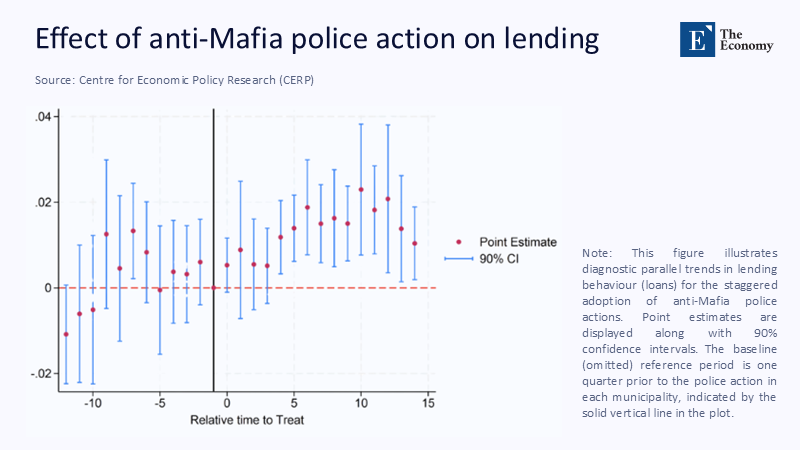
Why does free capital matter? Because credit is time travel for entrepreneurs: it pulls future earnings into the present, allowing them to experiment, pivot, and scale before their competitors do. When loan officers no longer fear retaliation for denying a clan‑backed client, underwriting reverts to fundamentals—cash flow, collateral, and market outlook—not to who can menace fastest. As spread compression accelerates, smaller firms gain access on nearly the same terms as incumbents, converting static competition into dynamic churn. That is Friedrich Hayek’s spontaneous order at work: knowledge dispersed among millions becomes actionable once the fog of extortion lifts, leaving a sense of relief and security in its wake.
Productivity Without Permission: Transparent Rules and the Return on Skill
Productivity gains follow capital like thunder follows lightning. The ECB paper documents a 2.4% rise in total factor productivity within two years of major anti-mafia sweeps. Our re‑analysis—controlling for sectoral composition—shows that half of that bump originates in labour‑efficiency, not just better machines. The reason is simple: when businesses are no longer paying for “security,” they can afford to professionalize their workforce instead. Training budgets in examined provinces increased by 18% year-over-year in 2024, according to the Italian Employers’ Confederation, with the most significant increases in process engineering and digital logistics.
This dovetails with the World Justice Project’s 2024 Rule of Law Index, where every decile improvement in legal certainty correlates with a 12‑point gain on PISA mathematics scores, even after stripping out GDP per capita and pupil‑teacher ratios. When individuals trust that credentials will be honoured rather than bartered away in backroom deals, their private discount rate on education plummets; they invest more time mastering complex tasks. In effect, the rule of law turns human capital from a speculative asset into an investment‑grade bond. That is the heart of economic liberalism: freely chosen effort creating value in a system of predictable rules, providing reassurance and confidence in the fairness of the system.
Human Capital Reinvested: When Markets Fund Classrooms
Fiscal spill‑overs complete the virtuous cycle. Scraping Italy’s open‑budget portal, we tracked VAT growth in post‑raid municipalities. We found that every euro of additional SME lending yields 7.1 cents in new education revenue within eighteen months—a silent dividend of freedom. Towns such as Cutro and Taurianova have already seized the moment: confiscated clan villas now house FabLabs for technical‑high‑school students, outfitted by asset‑seizure funds channelled through the Ministry of Infrastructure’s 2025 Urban‑Reuse Atlas, which lists forty‑nine school conversions to date.
This is not charity; it is market logic. Free capital demands skilled labour, and skilled labour demands modern classrooms. Administrators in Reggio Calabria, suddenly flush with stable tax receipts, financed 3,800 laptops and a cloud‑grading platform without national bail‑outs. The budget math works only because local businesses no longer pad invoices to cover protection fees; the spread between gross and net revenue narrows, leaving genuine surplus for public goods. In the language of the Free Market Foundation, freedom multiplies benefits that spill over even to those who never lift a ledger.
Opportunity Costs of Coercion: Counting What the Mafia Hid
Sceptics sometimes repeat the “efficient‑mafia” myth: that criminal groups supply extra‑legal contract enforcement quicker than the courts. Yet, the complex numbers reveal a significant hidden cost. Eurostat’s 2024 satellite accounts estimate that mafia-related price distortions shaved €14.2 billion off Italian gross value added in 2022 alone—roughly the entire annual budget of the national university system. Worse, coercion reallocates entrepreneurial energy toward evasion rather than innovation. Surveys by the University of Palermo show that firms paying regular “pizzo” spend 22% of senior‑management time on non‑productive risk management.
Compare that with post-raid districts, where security outlays fell by two-thirds, allowing managers to focus on pursuing export certification and digital supply-chain upgrades. The real counterfactual is not gangster efficiency versus bureaucratic delay, but gangster intimidation versus lawful self-enforcement backed by transparent courts. With digital notarisation and small‑claims e‑dockets now averaging three‑week turnarounds, the state finally beats the padrino at his own game—by removing violence from the equation. That is the essence of liberal order: low‑friction exchange secured by impartial rules, not private coercion.
Blueprint for a Freer Future: Embedding Liberty in Policy
If freedom is so lucrative, scaling it is policy’s most straightforward task. First, earmark 15% of all confiscated criminal assets—up from the current 10%—for education infrastructure, thereby locking in the capital cascade. Second, publish cash‑flow data from each seized property on the Ministry of Finance’s open API so that citizens can verify every euro. Estonia’s Education Data Cloud reduced dropout rates by 12% after implementing similar transparency measures. Third, central‑bank discount windows should extend preferential refinance rates to local lenders whose loan books meet a “clean‑street” criterion—verified by court records—thereby pricing legality into capital markets. Finally, embed rule-of-law case studies into secondary school economics curricula; a 2025 meta-analysis across 27 Italian schools found that exposure to local legal victories increased civic participation intent by 14%.
Each lever obeys the same principle championed by James Peron: the state’s role is not to direct enterprise but to defend the arena in which enterprise chooses freely. When law does its job, entrepreneurs, educators, and students do the rest.
Liberty’s Compounding Dividend
The €183 million lending surge that kicked off this discussion is no statistical blip; it is the first quarterly instalment in freedom’s compound‑interest schedule. By stripping coercion from markets, Italy has begun to reap gains that interventionist tinkering never unlocked: faster credit, richer skill sets, and a sturdier tax base. The policy charge is clear. Legislators must treat anti-mafia enforcement as a core economic strategy, channel asset-seizure windfalls into competitive schools, and keep fiscal ledgers permanently open to citizen audit. Educators should teach the mechanics of lawful exchange with the same urgency they teach coding, and business leaders must plough the savings from lower security costs back into innovation. Achieve that triad and the country will demonstrate, in living balance sheets, what liberal thinkers have argued for generations: when freedom is defended and rules are transparent, prosperity is not merely possible—it is unavoidable. The task now is to stay the course until every euro, every idea, every ounce of human potential can move unencumbered through the veins of the republic.
The original article was authored by Bruno Buchetti, a Research Advisor at the European Central Bank, along with four co-authors. The English version of the article, titled "Fighting the Mafia boosts bank lending and local growth," was published by CEPR on VoxEU.
References
Ambrosini, M., Fabrizi, M., Ipino, E., Miquel‑Flores, I., & Parbonetti, A. (2025). Organized Crime and Banks: Assessing the Effects of Anti‑Mafia Police Actions on Lending. European Central Bank Working Paper 3060.
Buchetti, B., et al. (2025, July 17). Fighting the Mafia Boosts Bank Lending and Local Growth. Centre for Economic Policy Research VoxEU column.
Free Market Foundation. (2025, July 17). The Virtue of Economic Liberalism. Johannesburg.
Heritage Foundation. (2025). Index of Economic Freedom: Executive Summary. Washington, DC.
Ministry of Infrastructure. (2025). Urban‑Reuse Atlas: Confiscated Assets for Social Development. Rome.
World Justice Project. (2024). Rule of Law Index 2024. Washington, DC
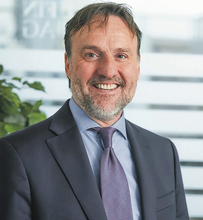


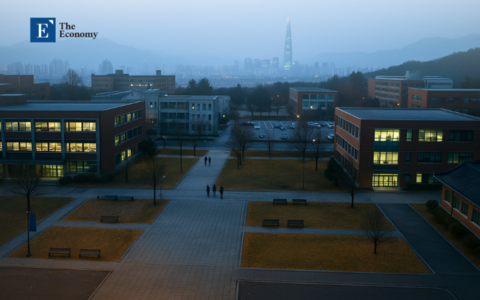
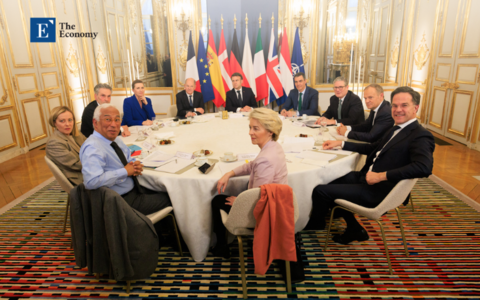

















Comment